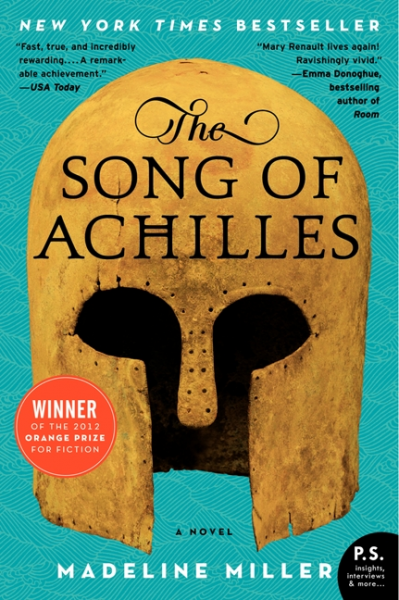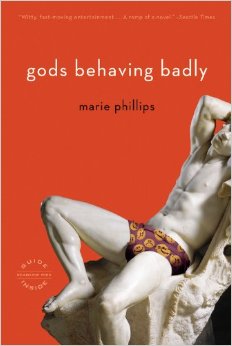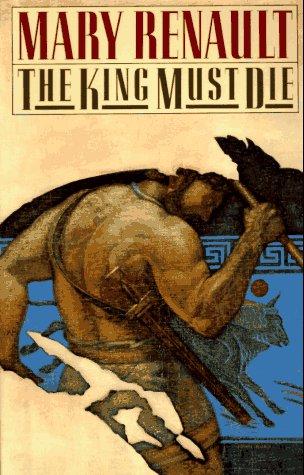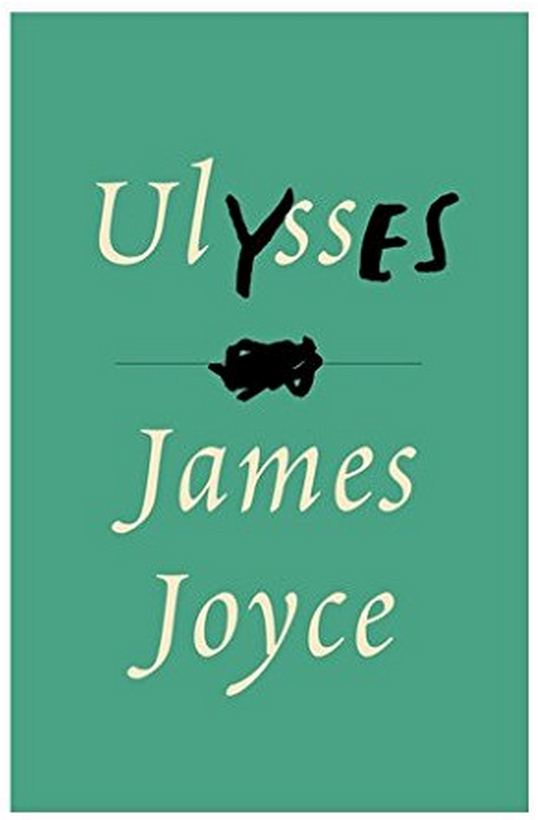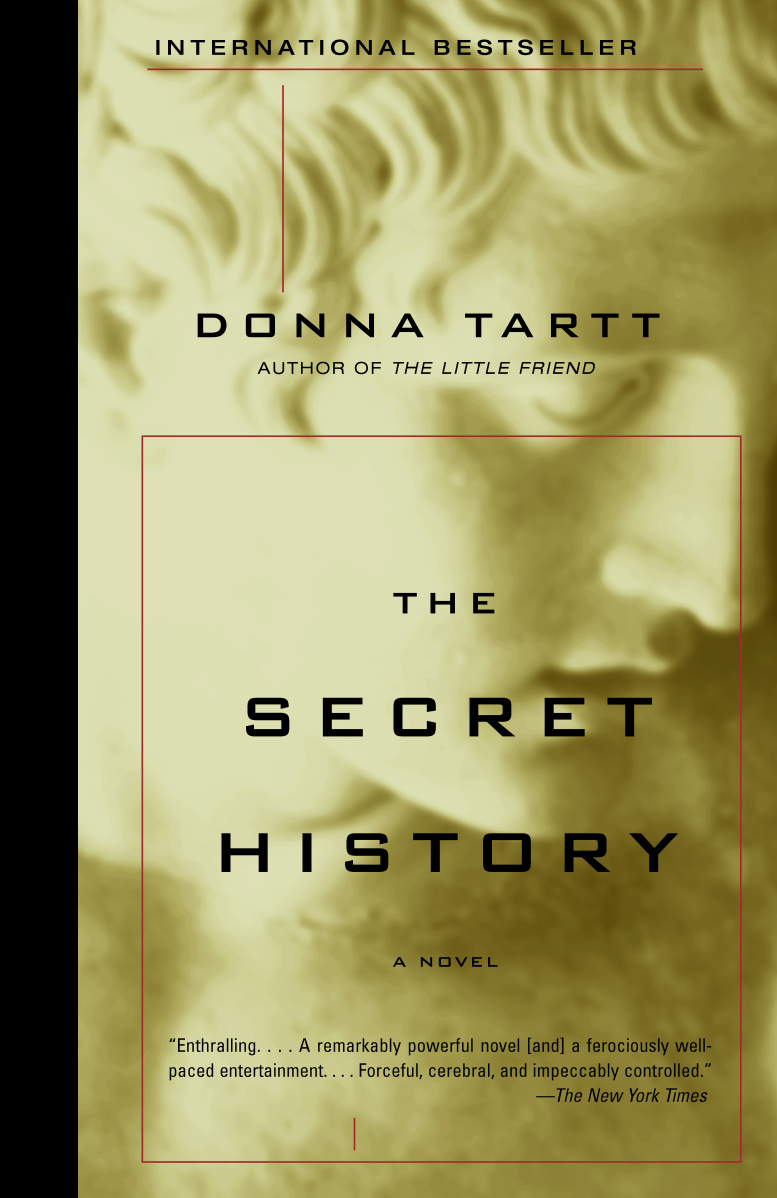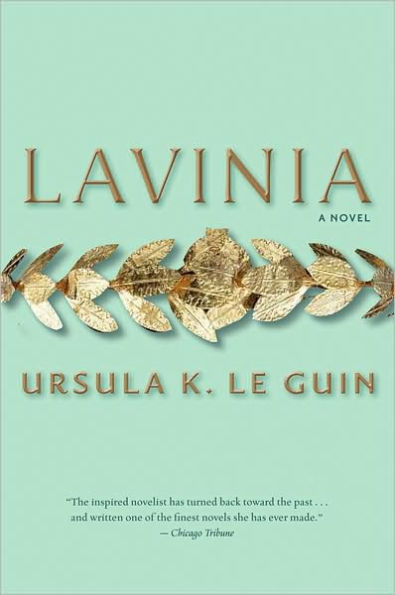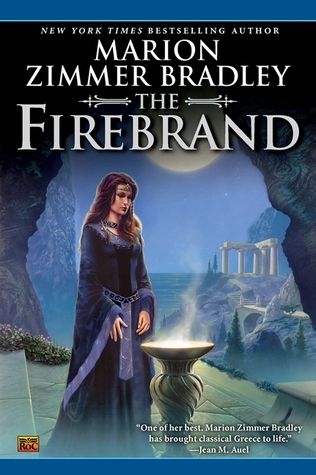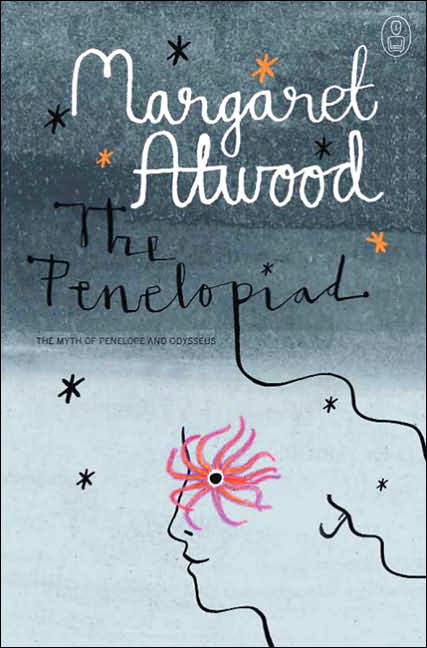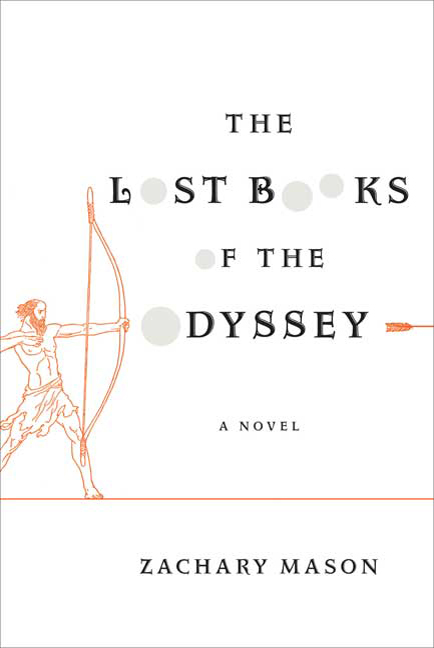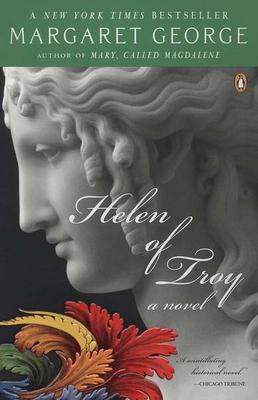I distinctly remember the day I received my first book of Greek mythology for my sixth birthday: it was the day I fell under the spell of the gods. These epic clashes between reason and rapture have long proved fertile ground for the imagination and a number of fantastic writers have drawn their inspiration from this expansive world. Many focus on the Trojan War—the desperate decade-long struggle that doomed both the victors and the vanquished—while others draw their inspiration from more obscure sources in the classical pantheon. If you’re looking for a new and different way to experience these beloved stories, here are the books to read.
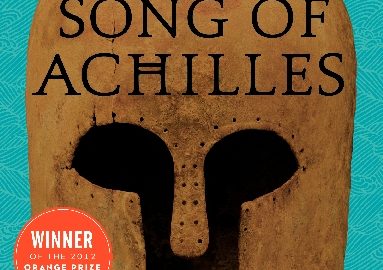
Under the Spell of the Gods: 11 Tales for Fans of Classical Mythology
A brilliant reimagining of Homer’s enduring masterwork THE ILIAD, this dazzling debut novel is an action-packed adventure and an epic love story. Those who fell under the Trojan War’s epic spell will delight in this unforgettable journey back to the Age of Heroes.
“I’ve always thought that a good book should be either the entry point inward, to learn about yourself, or a door outward, to open you up to new worlds. With THE SONG OF ACHILLES, Madeline Miller gave me both.”
MENTIONED IN:
This highly entertaining novel removes the gods from the lofty heights of Mount Olympus and unceremoniously hurls them into the twenty-first century. Life is hard for a group of Greek gods stuck in a dilapidated North London townhouse and it seems there is no way out . . . until a meek cleaner turns their world upside down.
This highly entertaining novel removes the gods from the lofty heights of Mount Olympus and unceremoniously hurls them into the twenty-first century. Life is hard for a group of Greek gods stuck in a dilapidated North London townhouse and it seems there is no way out . . . until a meek cleaner turns their world upside down.
In myth, Theseus was the slayer of Crete’s child-devouring Minotaur. This daring act of imagination explores the beloved Greek hero as an utterly lifelike figure: a king of immense charisma, whose boundless strivings flow from strength and weakness, but who is steered by a merciless prophecy.
In myth, Theseus was the slayer of Crete’s child-devouring Minotaur. This daring act of imagination explores the beloved Greek hero as an utterly lifelike figure: a king of immense charisma, whose boundless strivings flow from strength and weakness, but who is steered by a merciless prophecy.
This modernist masterpiece, whose title is derived from the Latin rendering of Odysseus, borrows its structure from the legendary king’s ten years of wandering after the fall of Troy. Every chapter has a corresponding theme from Homer’s epic poem for clever readers to discern; and Leopold Bloom, the character around whom the novel swirls, bears many elaborate parallels to the King of Ithaca.
This modernist masterpiece, whose title is derived from the Latin rendering of Odysseus, borrows its structure from the legendary king’s ten years of wandering after the fall of Troy. Every chapter has a corresponding theme from Homer’s epic poem for clever readers to discern; and Leopold Bloom, the character around whom the novel swirls, bears many elaborate parallels to the King of Ithaca.
Donna Tartt’s first, and I would argue her best, novel may not be a direct retelling of classical mythology, but its characters—a group of clever, eccentric misfits at an elite Vermont college—so wholeheartedly believe in the mighty power of the gods that they reenact an ecstatic Dionysian ritual in the woods behind their idyllic campus. Let’s just say that all does not go well.
If your favorite character is Jonathan Byers
The misunderstood, unhappy kid who yearns for an East Coast college where he can forget his modest upbringing and meet sufficiently interesting friends? Sounds like Richard Papen, the narrator of Donna Tartt’s first novel, THE SECRET HISTORY.
MENTIONED IN:
In The Aeneid, Virgil’s hero fights to claim Lavinia, with whom he is destined to found an empire. She herself never speaks a word. Now, the acclaimed writer and recent winner of the National Book Foundation’s Medal for Distinguished Contribution to American Letters, Ursula K. Le Guin, gives Lavinia a voice in a novel that takes us to the half-wild world of ancient Italy, when Rome was just a muddy village near seven hills.
In The Aeneid, Virgil’s hero fights to claim Lavinia, with whom he is destined to found an empire. She herself never speaks a word. Now, the acclaimed writer and recent winner of the National Book Foundation’s Medal for Distinguished Contribution to American Letters, Ursula K. Le Guin, gives Lavinia a voice in a novel that takes us to the half-wild world of ancient Italy, when Rome was just a muddy village near seven hills.
Just as The Mists of Avalon reimagined Arthurian legend through the eyes of marginalized and misunderstood female characters, Marion Zimmer Bradley reinvents the epic Trojan War through the eyes of Cassandra, Troy’s doomed princess, priestess, and seer.
Just as The Mists of Avalon reimagined Arthurian legend through the eyes of marginalized and misunderstood female characters, Marion Zimmer Bradley reinvents the epic Trojan War through the eyes of Cassandra, Troy’s doomed princess, priestess, and seer.
Penelope is portrayed as the quintessential faithful wife in Homer’s Odyssey, her story a salutary lesson through the ages. Margaret Atwood tells the story through her eyes, asking: “What was Penelope really up to?” In this splendid twist, Penelope’s story becomes haunting, told with wisdom and compassion.
Penelope is portrayed as the quintessential faithful wife in Homer’s Odyssey, her story a salutary lesson through the ages. Margaret Atwood tells the story through her eyes, asking: “What was Penelope really up to?” In this splendid twist, Penelope’s story becomes haunting, told with wisdom and compassion.
This brilliant and beguiling novel reimagines the hero Odysseus and his long journey home after the fall of Troy with great wit, beauty, and playfulness. Zachary Mason creates alternative episodes, fragments, and revisions of Homer’s original that, taken together, open up this classic myth to endless reverberating interpretations.
This brilliant and beguiling novel reimagines the hero Odysseus and his long journey home after the fall of Troy with great wit, beauty, and playfulness. Zachary Mason creates alternative episodes, fragments, and revisions of Homer’s original that, taken together, open up this classic myth to endless reverberating interpretations.
This lush, seductive novel reveals the legendary beauty whose face launched a thousand ships. Through her eyes and in her voice, we experience the young Helen’s discovery of her divine origin and terrifying beauty, her passionless marriage and flight to Troy. It is an intelligent, perceptive evocation of a woman whose life was destined to create strife and destroy civilizations.
This lush, seductive novel reveals the legendary beauty whose face launched a thousand ships. Through her eyes and in her voice, we experience the young Helen’s discovery of her divine origin and terrifying beauty, her passionless marriage and flight to Troy. It is an intelligent, perceptive evocation of a woman whose life was destined to create strife and destroy civilizations.

